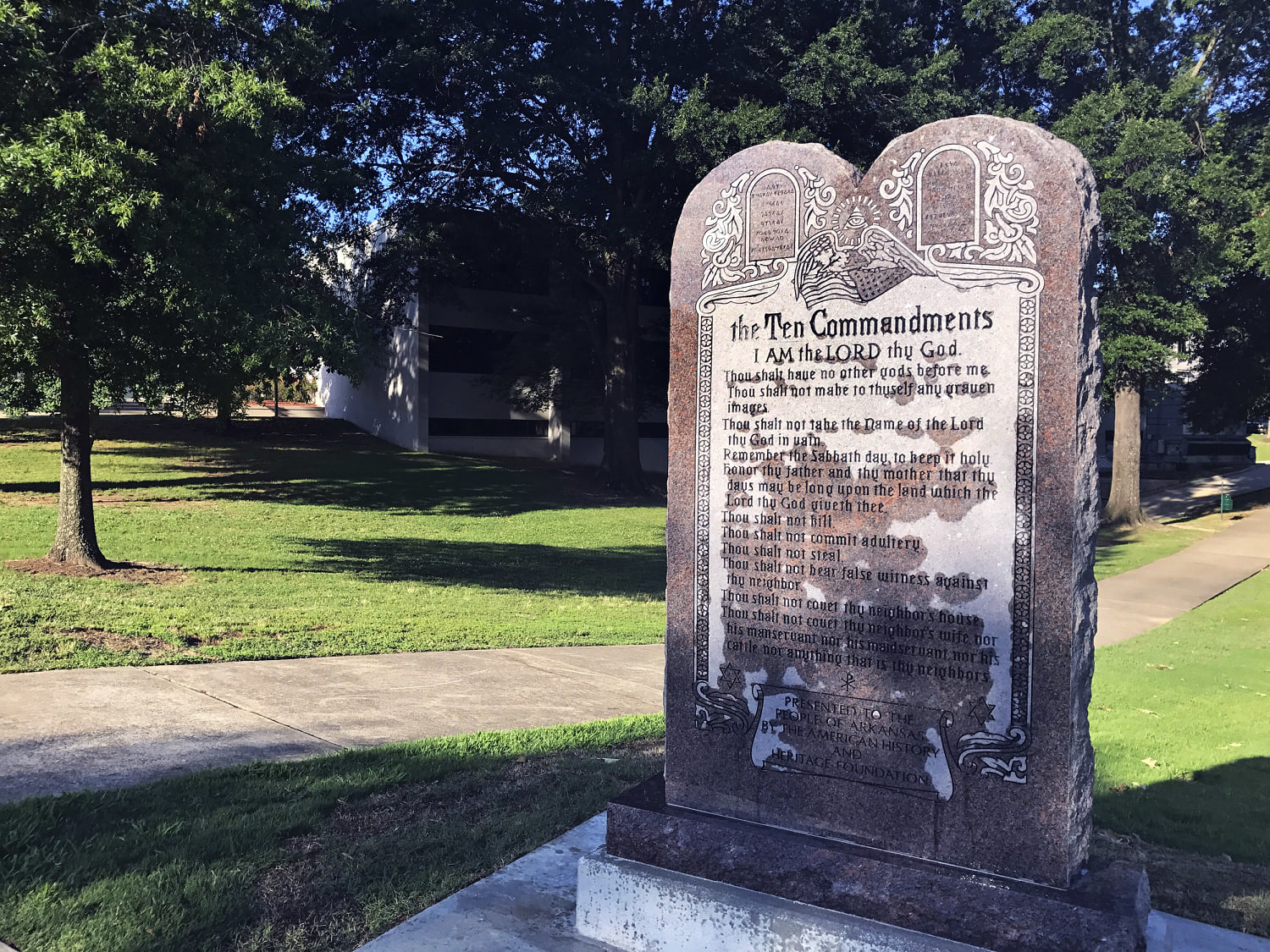
In recent months, a handful of Republican-dominated states have flirted with the idea of government-sponsored religious displays in public school classrooms, though those efforts ultimately fell short. As NBC News reported, however, GOP officials in Louisiana actually followed through on the idea.
Louisiana has become the first state to require that the Ten Commandments be displayed in every public school classroom under a bill Republican Gov. Jeff Landry signed into law Wednesday. The GOP-drafted legislation mandates that a poster-size display of the Ten Commandments in a “large, easily readable font” be in all public classrooms, from kindergarten to state-funded universities.
Under the new law, which will take effect in 2025, assorted other documents — including the Mayflower Compact and the Declaration of Independence — can also be displayed in classrooms, but only the Decalogue is required.
There will, of course, be some expense involved with displaying the Ten Commandments in every classroom in every elementary school, middle school, high school, and public university in the state of Louisiana, but the new law requires that they be financed through private donations.
It wasn’t long before Americans United for Separation of Church and State, the American Civil Liberties Union, the American Civil Liberties Union of Louisiana, and the Freedom from Religion Foundation announced their intention to challenge the new law in court.
“The law violates the separation of church and state and is blatantly unconstitutional,” the groups said in a joint statement. “The First Amendment promises that we all get to decide for ourselves what religious beliefs, if any, to hold and practice, without pressure from the government. Politicians have no business imposing their preferred religious doctrine on students and families in public schools.”
At first blush, it’s easy to imagine this lawsuit succeeding. After all, Louisiana’s new Ten Commandments is a legal, political, and theological mess.
For example, Protestants, Jews, and Catholics each honor the Commandments, but the different faith traditions number and word the Decalogue in different ways. It’s not the job of politicians in state government to choose which version deserves an official endorsement to be imposed on public school children. (The Commandment law in Louisiana, for the record, appears to go with the Protestant version, despite the state’s sizable Roman Catholic population.)
The legal dimension to this is every bit as jarring. Louisiana’s far-right Republican governor, Jeff Landry, declared yesterday, “If you want to respect the rule of law, you’ve got to start from the original law giver, which was Moses.”
Actually, if Louisiana Republicans want to respect the rule of law, they have to start with their own country’s Constitution, which includes the First Amendment, and honor U.S. Supreme Court precedent, which GOP officials in the state have decided to ignore.
Indeed, when officials in Kentucky approved a nearly identical law nearly a half-century ago, the U.S. Supreme Court ruled in 1980 that Ten Commandments displays in public schools were unconstitutional. The Decalogue, the justices ruled in Stone v. Graham, is “undeniably a sacred text in the Jewish and Christian faiths” and displaying them “serves no … educational function.”
So why would Louisiana Republicans take a step that the Supreme Court has already rejected? It’s probably because they’re confident that the newly politicized high court and its dominant far-right majority — not to mention the brazen Fifth Circuit Court of Appeals — will simply overturn the Stone precedent, doing fresh harm to the wall that’s supposed to separate church and state in this country.
“I can’t wait to be sued,” Landry said at a fundraiser over the weekend. Those were the words of a partisan who expects his ideological judicial allies to let him trample over Louisianans’ religious rights.

Leave a Reply